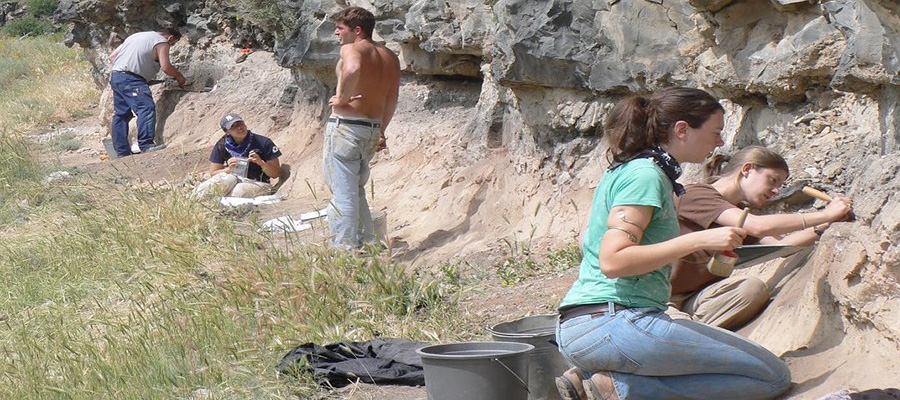Course instructor: Daniel Adler
About the Program

Overview
Students will participate in archaeological excavations and environmental reconstructions at Stone Age sites in Armenia that document a variety of important milestones in human biological, cognitive, and cultural evolution. To date, students have helped to excavate the following sites and document the behavioral evolution of Early, Middle, and Late Pleistocene hominins.
- Hrazdan Gorge: Nor Geghi-1 (400,000–300,000 years ago); Lusakert Cave (60,000–40,000 years ago); Solak-1 (~35,000 years ago); Hatis-1 (~450,000 years ago).
- Debed Gorge: Haghtanak-3 (2,000,000–250,000 years ago); Pgthavan-3 (~150,000–100,000 years ago).
While this project will provide UConn students with an exciting, new perspective on archaeology and prehistory, and the chance to experience a rich and vibrant culture, it is also designed to help train a new generation of Armenian prehistorians. As such, Armenian students from Yerevan State University (YSU) will work side by side with our team members. Participants will live in a local accommodation where breakfast and dinner will be served; lunch will be eaten in the field. Knowledge of Armenian or Russian, while helpful, is not required.
Location
This field school is operated as a subset of a larger international research project on the prehistoric human occupation in the Hrazdan & Debed gorges and their surroundings. Other participants in this project include specialists from King’s College London, Winchester University, Royal Holloway University London, & Scottish Universities Environmental Research Centre (UK), Yerevan State University & the Institute of Archaeology and Ethnography (Armenia), Universidad de La Laguna (Spain), University of Tübingen (Germany), University of Vienna (Austria), University of Leiden & Utrecht University (Netherlands), and Yale University. Students will have the opportunity to interact and work with several of these specialists during the program.